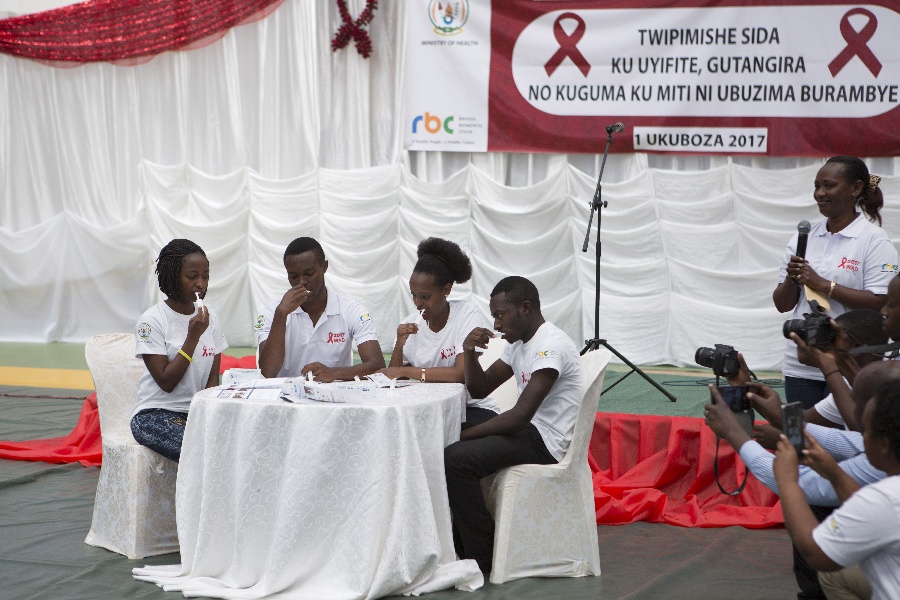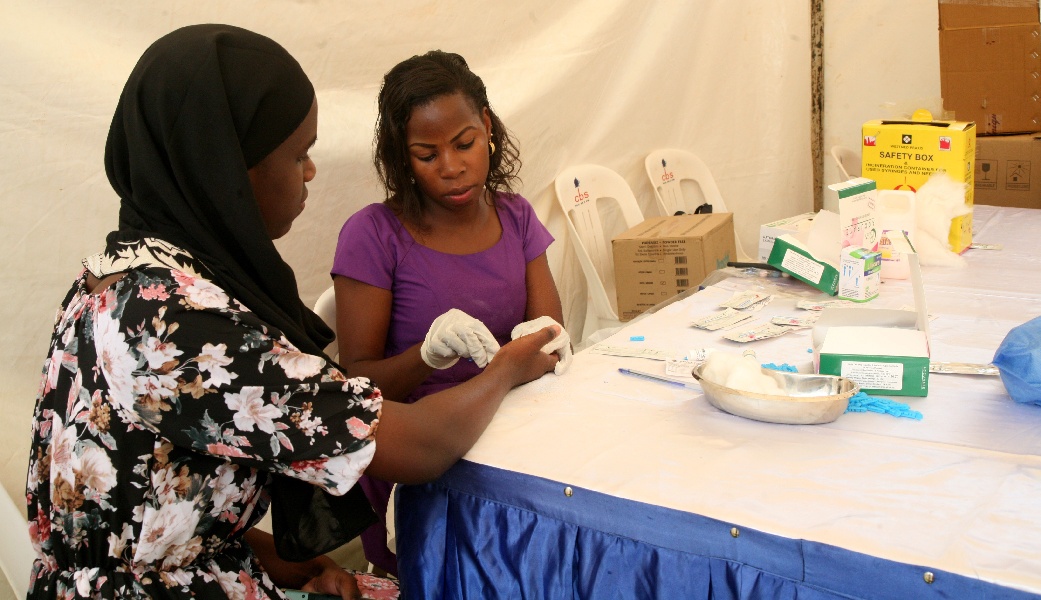
Demonstration on how to use oral HIV testing kit during the World AIDS Day activities in Kigali, Rwanda, Dec. 1, 2017. (Xinhua file photo/Gabriel Dusabe)
The African Union calls for concerted efforts to reduce the higher HIV/AIDS burden among Africa's vulnerable groups, including refugees, returnees and Internally Displaced Persons.
ADDIS ABABA, Dec. 2 (Xinhua) -- Chairperson of the African Union (AU) Commission Moussa Faki Mahamat has called for concerted efforts to reduce the higher HIV/AIDS burden among Africa's vulnerable grown-up, mainly refugees, returnees and Internally Displaced Persons (IDPs).
Chairperson of the 55-member pan African bloc, who on Sunday joined the global community to mark the World AIDS Day in support of people living with or affected by HIV/AIDS in Africa and beyond, said that the groups are especially at risk of HIV/AIDS, and more so young women between the ages of 15 and 19 who remain the most vulnerable to new infections.
"We have to urgently redirect our focus and address the relationship between HIV/AIDS and Sexual and Gender-based violence, especially in humanitarian and conflict settings," the AU Commission Chairperson said in a statement.

A health worker (R) attended to a local during a public awareness campaign aimed at reducing new HIV infections, in Kampala, capital of Uganda, May 16, 2019. (Xinhua/Joseph Kiggundu)
The AU Commission Chairperson, however, noted that the African continent "has made remarkable achievements in the AIDS response" since the Abuja Special Summit on HIV/AIDS, Tuberculosis and Related Infectious Diseases in 2001, during which African leaders declared AIDS as a State of Emergency in the continent.
The statement read, "While we have made significant strides to turn the tide of fear, suspicion, we still have a long road to travel to win the fight against this global killer that preys mainly among the most vulnerable in society."
Noting the "vital need" to increase access to HIV/AIDS treatment, care and support including in conflict areas, Mahamat stressed that the work of communities has always been at the forefront in offering life-saving support, comfort, care and often protection for those who needed it most.
"We renew our commitment to be part of this global community that raises our voices against stigma in our communities that fights for increased access and dignified access to treatment, care and support -- especially to those most at risk of infection," he added.
World Health Organization data show that there were still approximately 37.9 million people living with HIV worldwide as of mid-2019. Among them, about 25.7 million people were living in Africa.
However, significant progress has been made as HIV new infections decline and more people living with HIV gain access to treatment, according to a new report released recently by the Joint United Nations Programme on HIV/AIDS (UNAIDS).
New HIV infections declined by 28 percent from 2010 to 2018 in eastern and southern Africa, said the UNAIDS report.■



